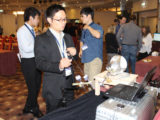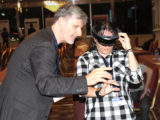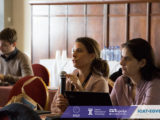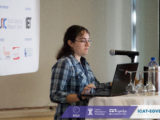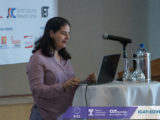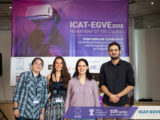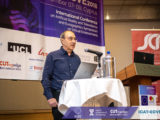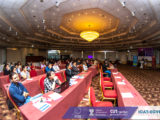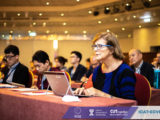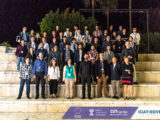The ICAT-EGVE 2018 conference was the merger of the 28th International Conference on Artificial Reality and Telexistence (ICAT 2018) and the 23rd Eurographics Symposium on Virtual Environments (EGVE 2018). The goal of the conference was to provide a unique opportunity for researchers, developers, and users to share their experience and knowledge of Virtual Reality, Augmented Reality, Mixed Reality and 3D User Interfaces.
ICAT-EGVE 2018 hosted six sessions in total, that included the long and short papers which are listed below:
- Session 1: Interfaces and Interaction
- Session 2: Avatars and Movement
- Session 3: Sensing and Rendering
- Session 4: Visual and Haptic Displays
- Session 5: Clinical Applications
- Session 6: Learning, Education and Collaboration
On the first day of the conference, Session 1 and 2 took place. On the second day of the conference, Session 3 and 4 took place, and in the last day, Session 5 and 6 took place.
ICAT-EGVE included two Fast Forward Sessions (A, B) in the first day of the conference, in which the posters and demos authors’ had the chance to do a short 4 minute presentation of their work. A teaser video of the posters and the demos was shown at the reception at the end of the first day of the conference, in which the demonstration of them took place as well.
The first keynote talk was by Professor Nadia Magnenat Thalmann (University of Geneva & Nanyang Technological University, Singapore) from the research lab MIRALab of the University of Geneva. Her talk was about “Mixed populated realities”. The second keynote talk was by Professor Mel Slater of the Event Lab of the University of Barcelona, Spain regarding “Self-Transformation Through Virtual Embodiment”. The third keynote note was by Tracy Spaight who is the Director of Special Projects at Wargaming.net regarding “Using VR and AR technology to drive engagement in military history museums”
GET Lab’s coordinator Despina Michael-Grigoriou was the general and local arrangements chair of the conference the lab’s PhD student Maria Christofi presented the paper “Studying Levels of Presence in a Virtual Environment Simulating Drug Use in Schools: Effect on Different Character Perspectives” and Panagiotis Charalampous presented his work on “Geometrical Algorithms for Real Time Sound Rendering Using Intelligent Prioritization.” GET Lab’s research associate Chris Christou presented the work “BuzzwireVR: An Immersive Game to Supplement Fine-Motor Movement Therapy.”

